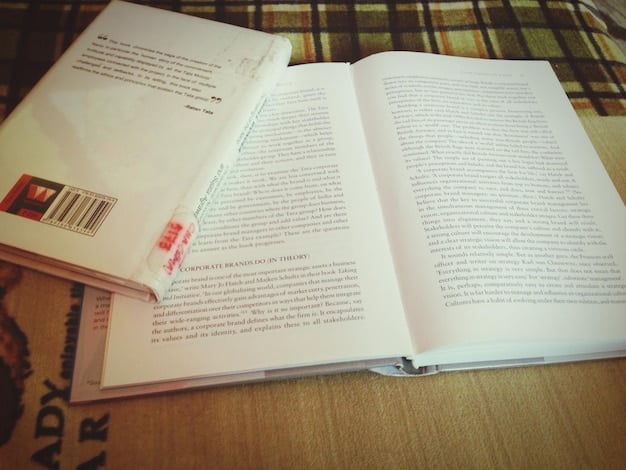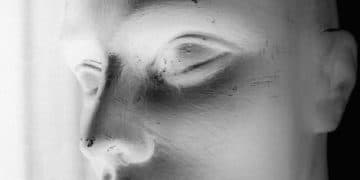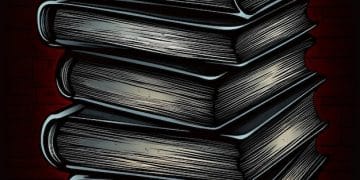Understanding The Ethics of Literary Criticism in American Literature

The Ethics of Literary Criticism: Navigating Interpretation and Authorial Intent in Contemporary American Literature delves into the complex moral responsibilities of critics. It explores the balance between personal interpretation, societal impact, and respecting the author’s vision within the context of modern American literary works.
Literary criticism plays a pivotal role in shaping our understanding and appreciation of literature. However, at the heart of every critical analysis lies a complex web of ethical considerations. The Ethics of Literary Criticism: Navigating Interpretation and Authorial Intent in Contemporary American Literature isn’t just about decoding texts; it’s about the responsibility critics bear in shaping public perception, respecting authorial intention, and fostering a nuanced literary landscape. How do critics balance their own interpretations with the author’s intended message? Let’s explore this more.
Understanding the Core of Literary Criticism Ethics
The ethics of literary criticism involves a delicate balancing act. It requires critics to be both insightful interpreters and responsible communicators, acknowledging the power their words hold. It’s about moving beyond mere personal preference and engaging with texts in a way that respects both the author’s creation and the potential impact on readers.
Objectivity vs. Subjectivity in Criticism
A central tension in literary criticism is the interplay between objectivity and subjectivity. Can a critic truly be objective when analyzing a work of art? Or is every interpretation inevitably shaped by personal biases and experiences?
While complete objectivity may be an unattainable ideal, aspiring towards it remains crucial. Critics can strive for objectivity through:
- Acknowledging their own biases and perspectives.
- Supporting their interpretations with textual evidence.
- Engaging with diverse critical viewpoints.
Even with these safeguards, a degree of subjectivity is unavoidable and can even enrich the critical discourse. The key lies in transparently acknowledging this subjectivity and engaging with it responsibly.

The challenge is to find a balance where personal insight enhances understanding without overshadowing the text itself. This is a core aspect of navigating The Ethics of Literary Criticism: Navigating Interpretation and Authorial Intent in Contemporary American Literature.
Authorial Intent: Respecting the Artist’s Vision
The question of authorial intent is a perennial debate within literary criticism. Should critics prioritize what the author intended to convey, or is the text open to any and all interpretations, regardless of the author’s wishes?
The Intentional Fallacy
Wimsatt and Beardsley’s concept of the “intentional fallacy” argues that judging a work based on the author’s intended meaning is flawed. They suggest that the text should stand on its own merits, independent of authorial intention.
However, completely disregarding authorial intent can be problematic. Understanding the historical, cultural, and personal context in which a work was created can offer valuable insights into its meaning and significance. A nuanced approach involves:
- Considering authorial intent as one factor among many.
- Recognizing that authorial intent may be complex or ambiguous.
- Prioritizing textual evidence over assumptions about the author’s mindset.
Ultimately, the goal should be to arrive at a well-informed interpretation that considers all relevant factors, including, but not limited to, the author’s documented intentions. When discussing The Ethics of Literary Criticism: Navigating Interpretation and Authorial Intent in Contemporary American Literature, it is key to not isolate the author’s intention.
The Critic’s Responsibility: Shaping Public Perception
Literary critics wield significant influence over public perception of literature. Their interpretations can shape how readers understand and value certain works, authors, and literary traditions. This influence carries a heavy ethical responsibility.
Avoiding Misrepresentation and Sensationalism
Critics have a responsibility to accurately represent the works they analyze. This means avoiding:
- Misleading quotes or decontextualized passages.
- Exaggerated claims or sensationalized interpretations.
- Dismissive or disrespectful language towards authors or their works.
- The desire to be controversial without reasonable justification.

The primary goal should be to illuminate the text for readers, not to promote a personal agenda or create unnecessary controversy and being mindful of The Ethics of Literary Criticism: Navigating Interpretation and Authorial Intent in Contemporary American Literature.
Promoting Diversity and Inclusion
Critics also have a responsibility to promote diversity and inclusion within the literary landscape. This means:
- Giving voice to marginalized authors and perspectives.
- Challenging traditional canons and biases.
- Fostering a more inclusive and representative literary discourse.
By actively seeking out and celebrating diverse voices, critics can help to create a more equitable and enriching literary environment.
When looking at The Ethics of Literary Criticism: Navigating Interpretation and Authorial Intent in Contemporary American Literature it is important to look at the responsibility the critics have.
Contemporary Challenges in Literary Criticism
The field of literary criticism is constantly evolving, facing new challenges and ethical dilemmas in the digital age. The rise of social media, online reviews, and “cancel culture” has significantly impacted the way we engage with literature.
Social Media and the Democratization of Criticism
Social media has democratized literary criticism, giving a platform to anyone who wants to share their opinions about books. While this can be empowering, it also raises concerns about accountability, expertise, and the spread of misinformation.
The challenges are numerous:
- Distinguishing informed criticism from casual opinions.
- Combating the spread of biased or malicious reviews.
- Protecting authors from online harassment and abuse.
Critics must navigate this new landscape with caution, promoting responsible online discourse and upholding ethical standards within the digital realm.
The idea of social media impacts the perception of The Ethics of Literary Criticism: Navigating Interpretation and Authorial Intent in Contemporary American Literature as the interpretation is more open to public opinion.
Cancel Culture and the Limits of Interpretation
“Cancel culture” presents another ethical challenge for contemporary literary criticism. The desire to hold authors accountable for past transgressions can sometimes lead to the suppression of their work or the silencing of dissenting voices.
The debate around “Cancel Culture” has led to questions such as:
- How do we balance the need for accountability with the principles of free speech and artistic expression?
- What are the limits of interpretation when discussing sensitive or controversial topics?
- How can we engage with problematic texts in a way that is both critical and constructive?
Navigating these complex issues requires careful consideration, intellectual honesty, and a commitment to fostering open dialogue rather than resorting to censorship or condemnation.
Promoting Ethical Literary Criticism: A Path Forward
Embracing ethical considerations is essential for the continued vitality and relevance of literary criticism. By prioritizing responsible interpretation, respecting authorial intent, and promoting diversity and inclusion, critics can contribute to a richer and more meaningful literary discourse. This path forward requires ongoing reflection, self-awareness, and a willingness to engage with challenging questions.
This engagement requires a push from:
- A commitment to intellectual honesty and rigorous scholarship.
- A transparent articulation of their biases and perspectives.
- A willingness to engage with diverse critical viewpoints.
By embracing these principles, we can ensure that literary criticism serves as a force for enlightenment, understanding, and positive social change, and promoting The Ethics of Literary Criticism: Navigating Interpretation and Authorial Intent in Contemporary American Literature.
With a continuous push for diverse mindsets and opinions with The Ethics of Literary Criticism: Navigating Interpretation and Authorial Intent in Contemporary American Literature, literary criticism will thrive.
| Key Point | Brief Description |
|---|---|
| 💡 Objectivity vs. Subjectivity | Finding a balance to enhance understanding. |
| ✍️ Authorial Intent | Considered context but text stands on its own. |
| 🌐 Critic’s Responsibility | Shaping perception, avoiding misrepresentation. |
| 📱 Contemporary Challenges | Social media, cancel culture impact ethics. |
Frequently Asked Questions
The main ethical considerations involve balancing personal interpretations with respecting authorial intent, accurately representing the work, and promoting diversity and inclusion in literary discourse.
Critics can balance these by acknowledging their biases, supporting interpretations with textual evidence, and engaging with diverse viewpoints, while transparently recognizing their subjectivity.
Authorial intent should be considered as one factor among many, recognizing it may be complex or ambiguous, and prioritizing textual evidence over assumptions about the author’s mindset.
Social media has democratized criticism but raised concerns about accountability, expertise, and the spread of misinformation, requiring critics to navigate this landscape cautiously.
We can promote ethical criticism by balancing accountability with free speech, engaging with problematic texts critically and constructively, and fostering open dialogue rather than resorting to censorship.
Conclusion
In conclusion, understanding and applying **The Ethics of Literary Criticism: Navigating Interpretation and Authorial Intent in Contemporary American Literature** is crucial for responsible and meaningful engagement with literary works. It requires a commitment to balancing personal interpretation with authorial intent and societal impact.





